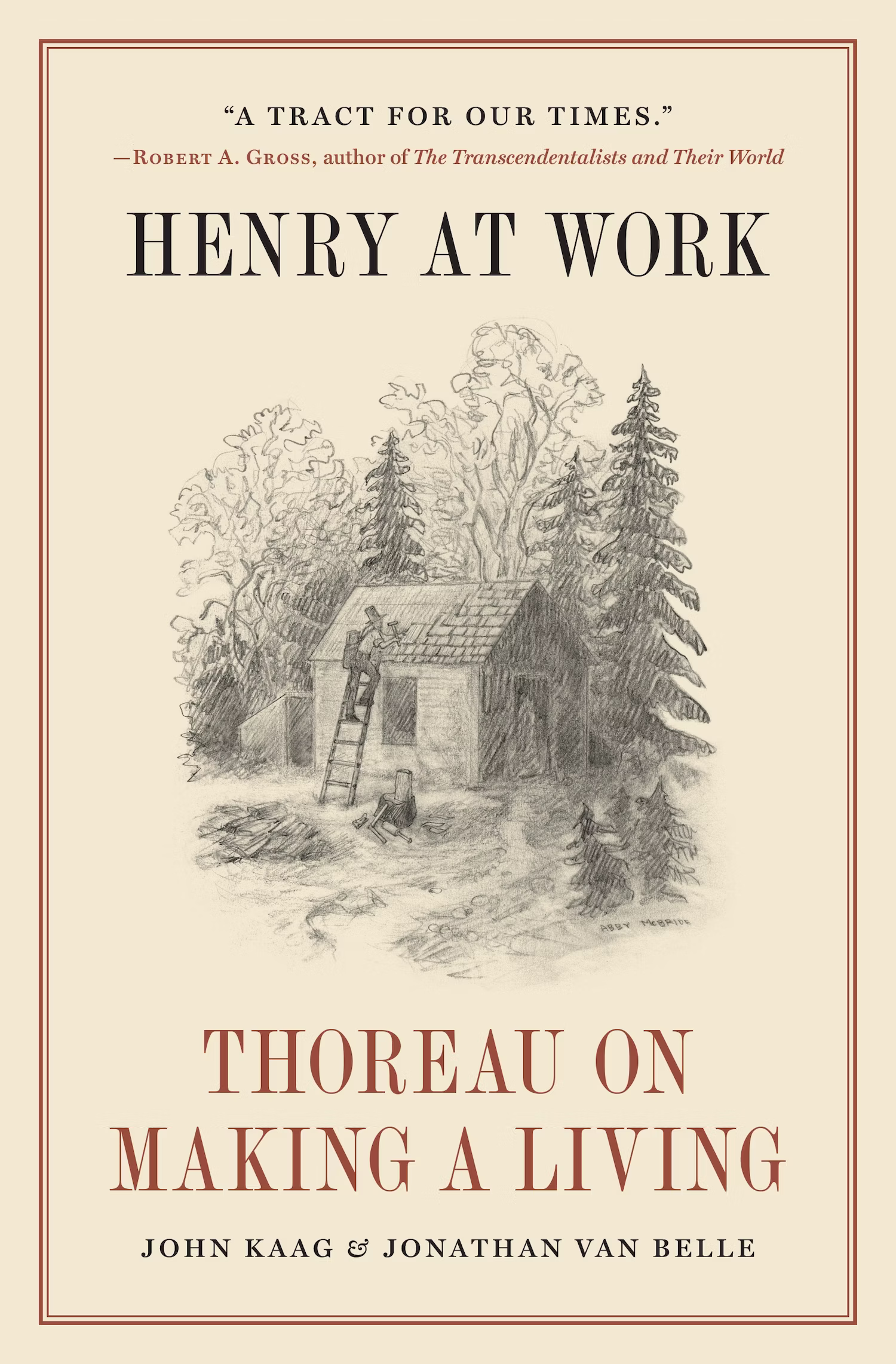Let us consider the brighter and sillier side of Henry David Thoreau on the subject of work. Sometimes, when work is at its worst—its most exacting, alienating, rushed—we need grim humor to be honest with those around us, to break through all of the toxic positivity, prim professionalism, and the artificiality of a human animal in the strange and difficult circumstance of being on the clock. Thoreau was an absolute master of humor. Even near the end of his life, in his last battle with lifelong tuberculosis, when his Calvinistic Aunt Louisa asked if he had made his peace with God, Thoreau joked, “I did not know we had ever quarreled.”
The minutes will pass while we are on the job; that is a certainty. But Thoreau would like to take advantage of the fullness of time even if it means simply stealing just a moment to laugh a little at the absurdity of it all. If time has to kill us, the least we can do is kill time in a humorous way. We speak from experience here.
One of us worked retail for a good number of years, and, slowly, surely, after those eternities of customer service, came to appreciate the wisdom of (or rather wisdom misattributed to) the German pessimist Arthur Schopenhauer: “There are two kinds of people in the world. Avoid both of them.”
Jokes at work, some lame, some dark, helped to make the day go faster. “If you need me, hesitate to call.” “How long have I been working for this company? Ever since they threatened to fire me.” In the thick of work, crude humor helps too: “Boss makes a dollar. I make a dime. That’s why I shit on company time.” If you think Thoreau was above crude humor, think again.
Jokes disrupt the predictable, permit the impermissible, and treat our dark and painful sides lightheartedly.
Thoreau was a trickster, jokester, punster, almost a Mark Twain, but dry as the Sahara in his delivery; thus Thoreau’s levity, even flippancy, is commonly missed. Thoreau played Puck of Walden Pond—Puck, that “shrewd and knavish” nature sprite, to use Shakespeare’s adjectives from A Midsummer Night’s Dream.
Around the time of Walden’s publication, Thoreau made a list of his faults, which included “not always earnest” and “playing with words—getting the laugh,—not always simple, strong, and broad.” We find perhaps one the best examples of Thoreau’s “getting the laugh” in the first chapter of Walden. “I have watered the red huckleberry, the sand cherry and the nettle tree, the red pine and the black ash, the white grape and the yellow violet, which might have withered else in dry seasons.” Thoreau “watered” the woods of Concord well. This is comic relief in all senses.

